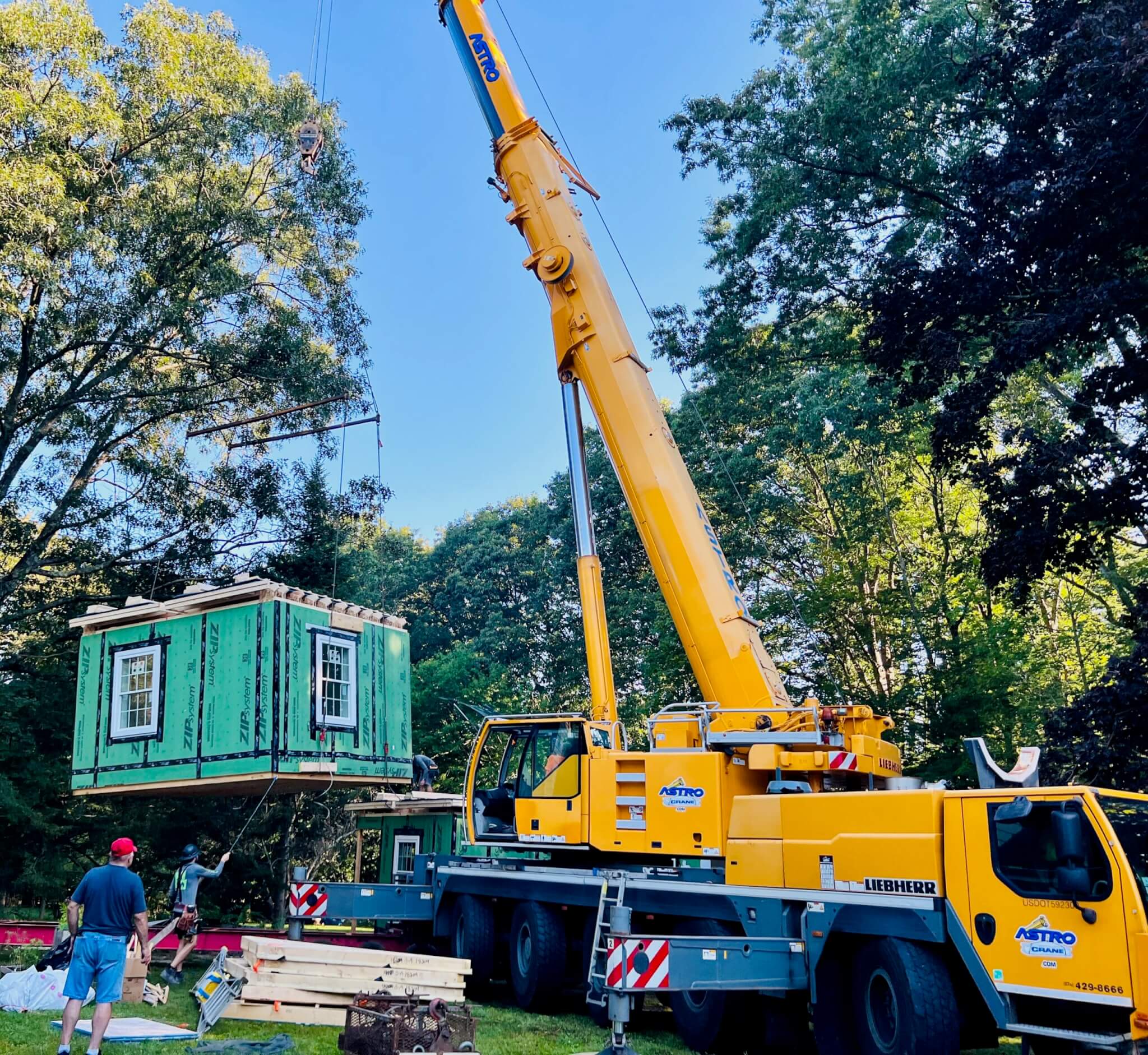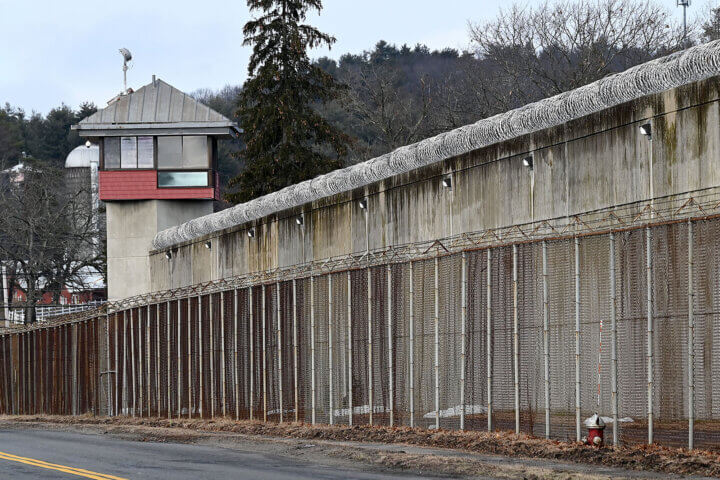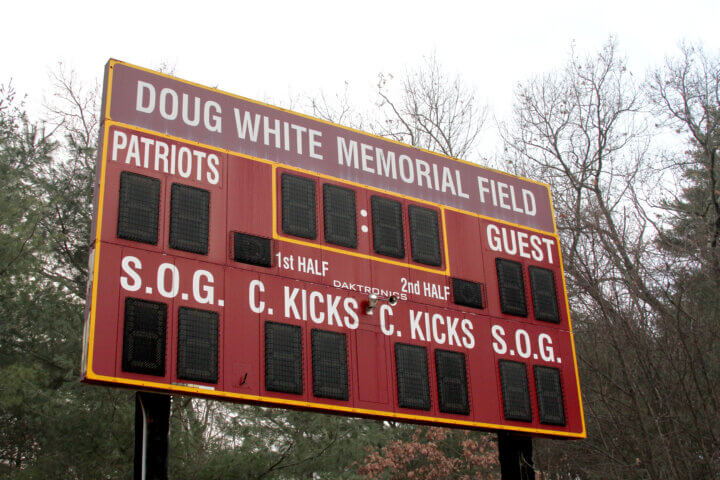As Joan McDade moves into the middle of her eighth decade, she’s moving into a brand new house … right in the backyard of her old one.
The now-retired teacher and her late husband bought their Adams Road home in 1971. They raised their kids there.
But with age came more difficulty getting around. Now 85, McDade moved to a rental apartment, but the price jumped to a “ridiculous” $4,200 a month. She had other options, but didn’t “want to go into any of those assisted living things,” and at home, she says, “there’s a lot of neighbors that I’m very fond of. I don’t want to leave them.”
Now she doesn’t have to: McDade’s family set her up in a one-bedroom prefab house — an additional dwelling unit, or ADU — behind the family home. It wasn’t cheap, but the 720-square-foot prefab solved a problem families in Concord and nationwide are pondering — how seniors can “age in place” with independence, but without full separation from beloved homes, family and friends.
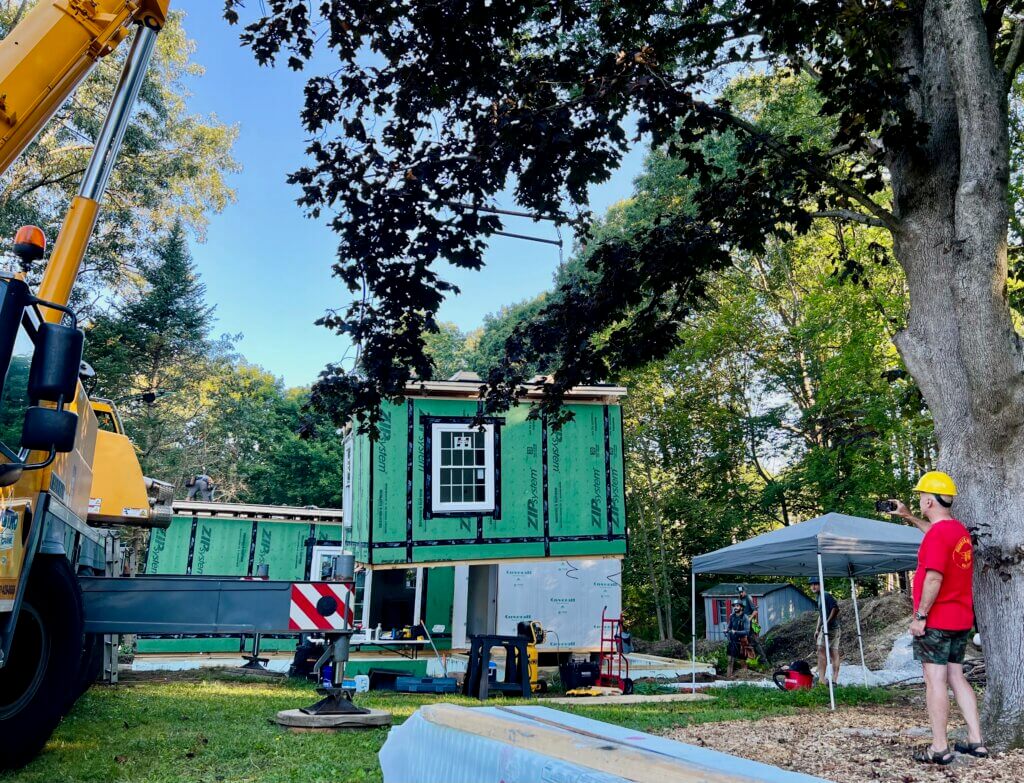
Joan and her family say they’ll now enjoy both proximity and privacy. Downsizing to a smaller, single-floor home is a big positive given her mobility concerns: “I’d rather have less to walk around in and take care of,” she says.
Son and daughter Sean and Lauren McDade were in the yard bright and early a few weeks ago for the mini-house delivery. They’d considered an array of setups for their mom, and the ADU came out on top.
To modify the family home was going to be more complicated and expensive, and “timewise, it’s just not easy to get contractors for anything,” says Sean, a portfolio manager. Going that route, “We just thought, ‘All right, we’re gonna end up with a Frankenstein house four years later — and no one’s going to be happy.’”
The McDades are looking at around $300,000 in total for the ADU project — not within every family’s budget. Besides opting for some higher-end finishes, they also had to put in costly sewer connections.
Still, as of late September, Zillow reported the median rental price in Concord at $3,850 a month. The median home sale price was $1.5 million, per Redfin. A 2022 Boston Magazine survey of median single-family home prices ranked Concord twelfth-highest in Greater Boston.
Lauren, a former teacher pursuing a graduate degree in data science, has been living with her mom. If that arrangement was to change, she says, “I just wanted her somewhere where someone [can be] checking in.”
Now, Joan will be just steps from Sean and his family, who live in the original house.
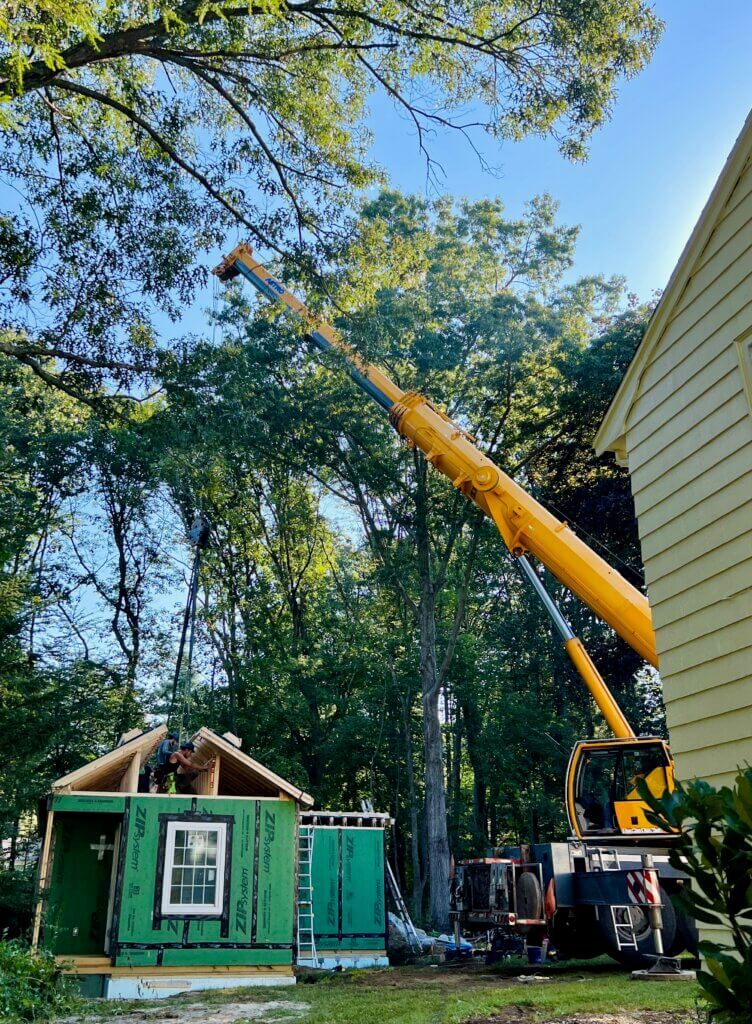
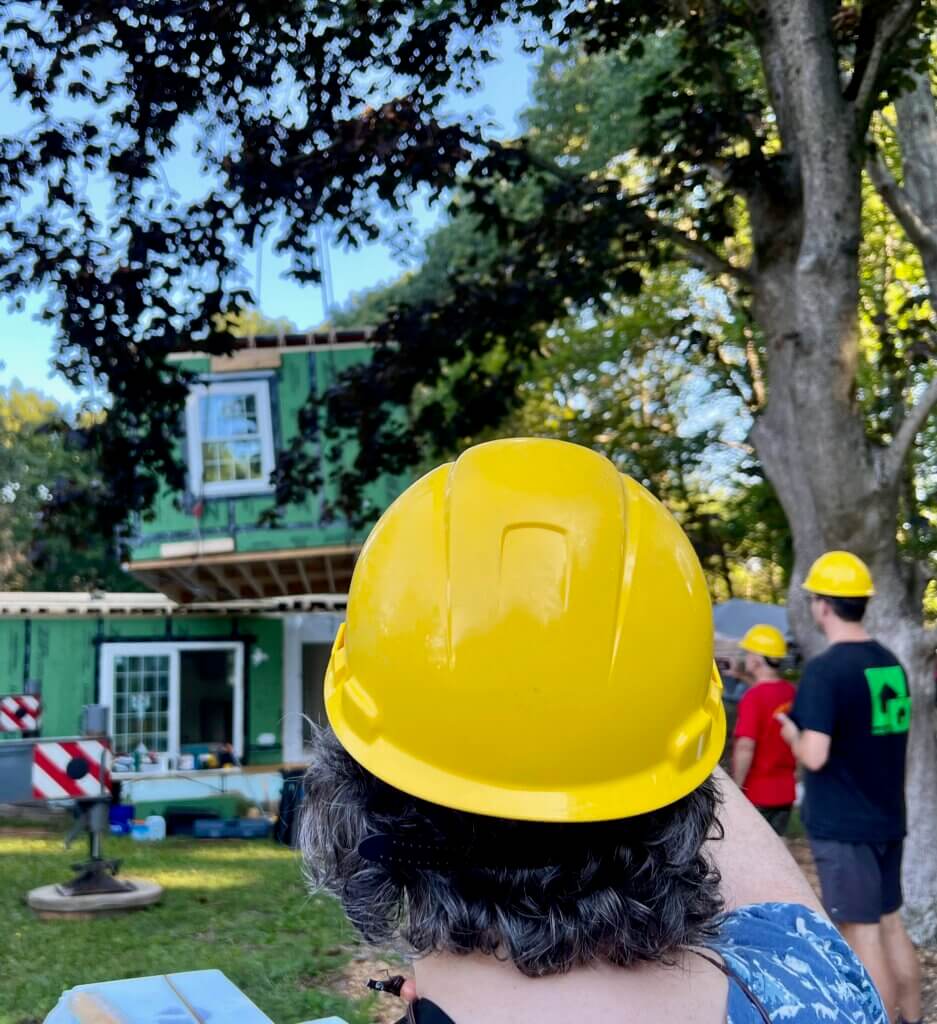
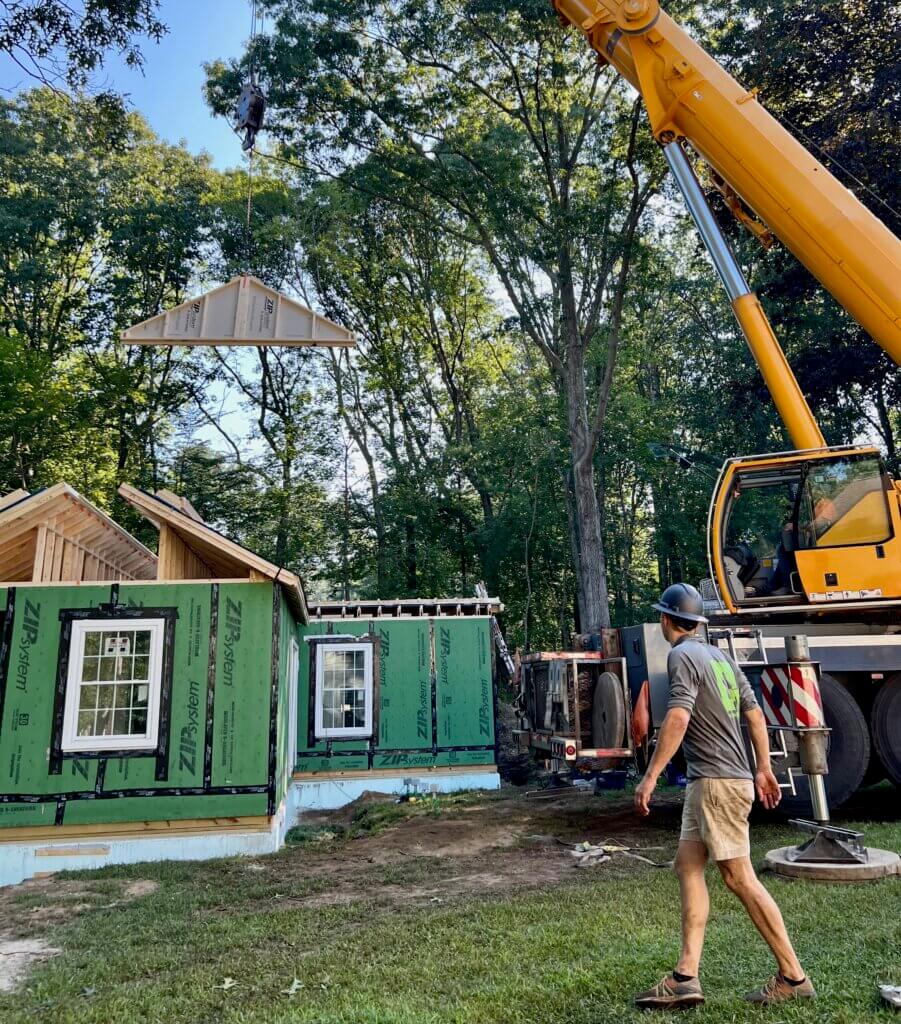
The family has also watched people buy smaller, older Concord homes, demolish them, and build bigger. The McDades didn’t want that for their approximately 1,500 square foot home: “Everybody does that, and it’s really wasteful,” Lauren said, “so we’re like, ‘How do we preserve, but still build?’”
Concord’s zoning allows — with regulation — for ADUs that don’t “substantially alter the appearance of the town,” either as rentals or to accommodate a need “to share space and the burdens of homeownership.” Only one ADU is allowed per lot, and the owner must occupy either the house or the new unit. The tiny home can’t be used for a bed and breakfast or sold separately from the house.
Tim O’Reilly of Backyard ADUs, the company that built the McDade’s tiny home, says in places like Concord that allow tiny homes, objectors may take issue with views from their property changing — or just with change itself.
He advises clients to explain to neighbors why they want an ADU, such as to house aging parents or adult children returning home, “which is a message often well received. Finding housing for loved ones is very difficult today, so I find most people get it when they hear the story and are told ahead of time.”
In a recent case of another Concord homeowner seeking approval for an ADU, an objector argued there was potential for the law to be abused — and that tiny homes do little to address the housing crisis.
But at the September 14 Zoning Board of Appeals meeting, Chair Theo Kindermans said the ADU bylaw allows for the creation of housing that’s simply not otherwise available.
“I actually feel pretty strongly about this, and I think that every unit that gets added helps alleviate the housing crisis,” Kindermans said. “Maybe not measurably, but you try to get a housing unit for a senior in this area — and I speak from experience here. That is a very hard thing to do.”
Planning Board Chair Linda Miller said it’s worth watching on how ADUs factor into Concord’s overall housing future. “I think the whole issue is the balancing act between allowing some creative approaches to developing houses [and] maintaining the character of the town,” she said.
“Everybody’s looking for ideas that work for different lifestyles, different price points” within a framework of “keeping the people who want to stay in a home in Concord and downsize” to “people who want to move in and have a very difficult time finding an entry level,” she said. “We’d like to see what works best for the community.”
As of 2022 Census data, roughly 20 percent of Concord’s population was 65 or older. Nationally, the population is aging too: In 2020, per Census figures, about one in six people in the U.S. were 65-plus, compared to one in 20 a century ago. More families face the kind of choices the McDades grappled with.
For her part, Joan McDade is looking forward to enjoying her new, private space on land, and in a neighborhood, that’s been part of her family for more than 50 years.
“I should have done this when I was 80,” she mused.


